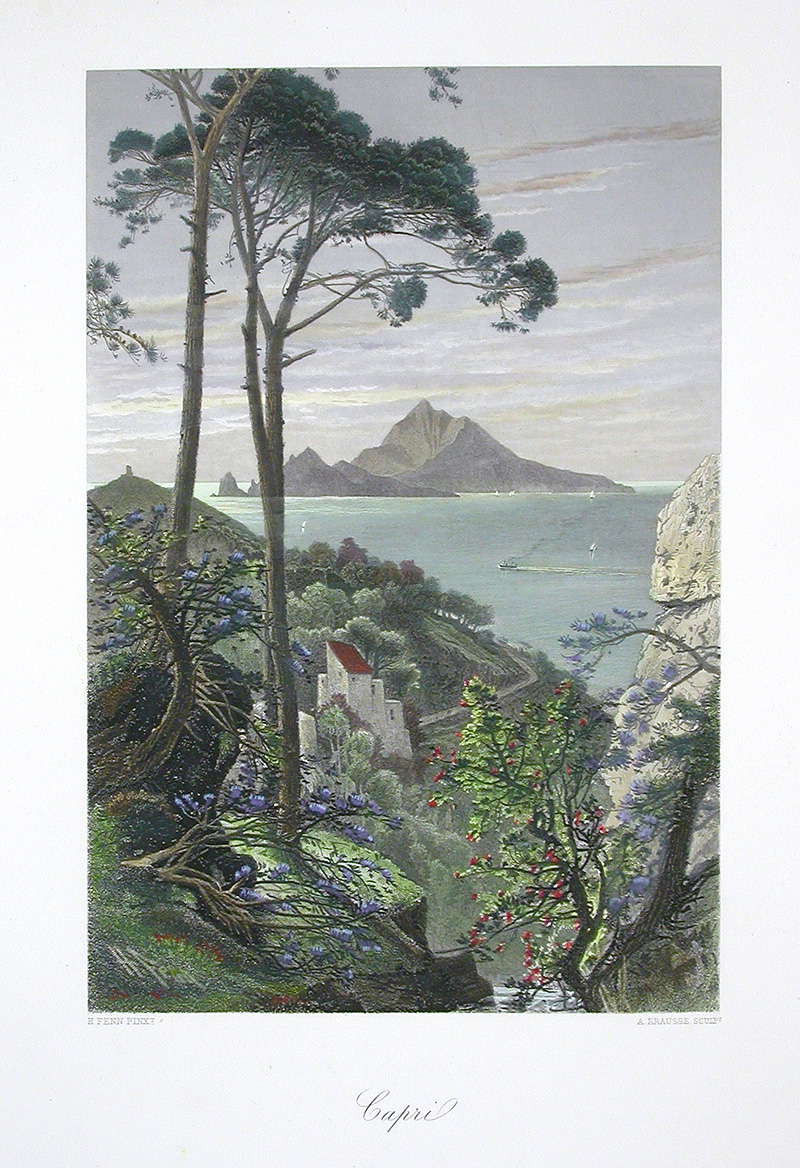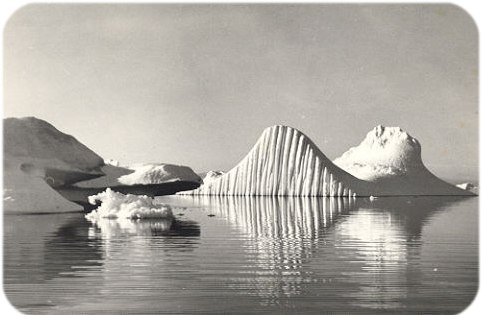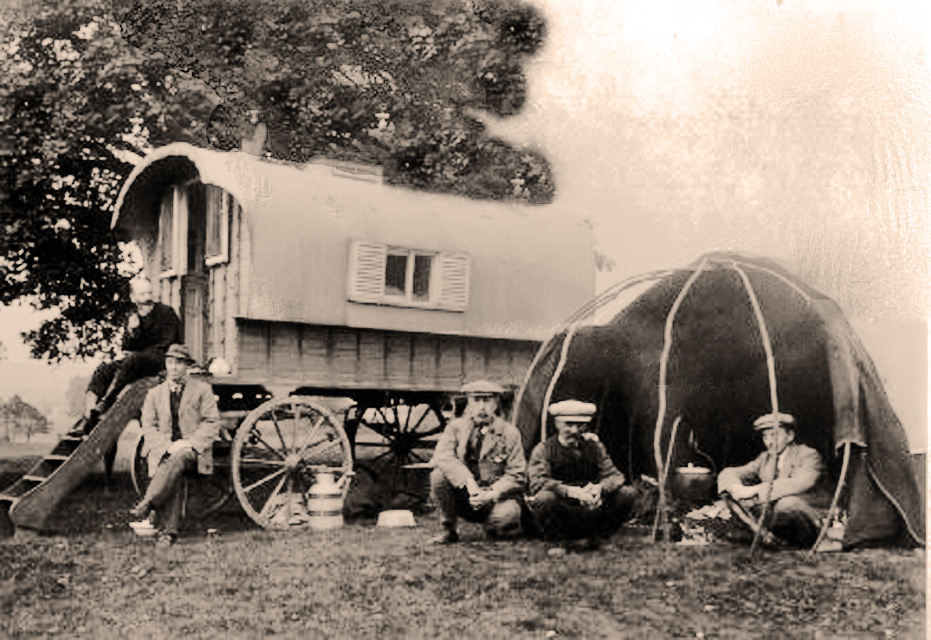Archives Hub Feature for August 2013

The season of summer often brings hopes and plans for holidays and this month we’re looking at the wider theme of travel.
The hundreds of collections relating to travel featured in the Archives Hub shed light on multiple aspects of travel, from royalty to the working classes, and encompassing touring, business, exploration and research, the work of missionaries and nomadic cultures.
“The world is a book and those who do not travel read only one page” – St. Augustine.
Travel diaries
There are a number of travel diaries recording impressions of, and experiences in, the UK, Europe and beyond from a bygone era. ‘Grand tours’, leisurely and often luxurious, were the domain of the more privileged classes, where sometimes business and pleasure were combined. In more recent times, the pursuit of knowledge, education and ideas has motivated similar educational journeys.
Collections:
Thomas Moody, journal of a tour through Switzerland and Italy, 1822.
http://archiveshub.ac.uk/data/gb227-msd919.m7e22
Beatrice Webb, A summer holiday in Scotland, 1884.
http://archiveshub.ac.uk/data/gb227-msda865.w4
Harriet Susan Miller: Continental Tour Journal, c. 1856.
https://archiveshub.jisc.ac.uk/data/gb12-ms.add.6230
Watercolour paintings and photographs of Canada by an unidentified artist, 1884.
The paintings and photographs are held within a large album, providing a record of a journey by unidentified travellers to Canada from Liverpool in 1884. http://archiveshub.ac.uk/data/gb159-ms57
Extracts from the journal of William George Meredith during a trip to Spain and the East in the years 1830-1831.
Accompanied by Benjamin Disraeli, together with associated correspondence.
https://archiveshub.jisc.ac.uk/data/gb206-brothertoncollectionms19cmeredith(1)
Diary of travels through Italy and France, compiled by Sir William Trumbull, 1664-1665.
http://archiveshub.ac.uk/data/gb206-brothertoncollectionmstrvd1
Nassau William Senior Papers, 1830-1864.
Copies of journals kept by Nassau William Senior recording his visits to France, Germany, Austria, Italy, Ireland, Greece, Algeria and Egypt between 1850 and 1862. http://archiveshub.ac.uk/data/gb222-bmssnws
Papers of Sir Leonard David Gammans and Lady Ann Muriel Gammans, ne Paul, 1916-1971.
Diaries, notebooks, etc. of Leonard David Gammans, 1916-1956; diaries. etc. of Ann Muriel Gammans, 1918-1970; tourist brochures and other printed material concerning South Africa, [1965-1971]. http://archiveshub.ac.uk/data/gb161-mss.brit.emp.s.506
J.R.T. Pollard Papers, 1930-1999.
The collection consists of diaries and papers of J.R.T. Pollard. The diaries include details of the author’s extensive travel, particularly in Europe and observations regarding his years of army service in Africa (1941-1945). http://archiveshub.ac.uk/data/gb222-bmssjpol
Manuscript Itinerary of Henry III of England.
Not quite a diary, but of special note, is the late 19th Century Manuscript itinerary showing the geographical whereabouts of Henry III, where known, for all dates from 1216 to 1272. http://archiveshub.ac.uk/data/gb133-engms123
Business and work-related travel
Collections:
Records of the United Commercial Travellers’ Association (Nottingham Branch), 1908-1975.
The collection comprises accounts from 1932-1967, Committee minutes from 1908-1967 and registers from 1920-1975.
http://archiveshub.ac.uk/data/gb159-ct
Papers of James Craig Henderson, fl. 1941-1950, commercial traveller.
Commercial traveller in the Middle East.
https://archiveshub.jisc.ac.uk/data/gb248-ugd305
Papers of John Hunter, fl 1865-1912, carpenter’s mate, Royal Navy.
http://archiveshub.ac.uk/data/gb248-ugc076
John William Ramsay, 13th Earl of Dalhousie: Naval Notebook, HMS Galatea , 1869-1871.
http://archiveshub.ac.uk/data/gb12-ms.add.9279
Papers of John Wylie, merchant, Glasgow, Scotland, 1809-1840.
http://archiveshub.ac.uk/data/gb248-ugd028
Household book of James Sharp, Archbishop of St Andrews, 1663-1666.
Household account book of James Sharp, archbishop of St Andrews, kept by his secretary George Martin of Claremont, including details of journeys to Edinburgh and London.
http://archiveshub.ac.uk/data/gb227-msbx5395.s4m2
Exploration and research

Contrasting with travel for pure pleasure, was travel for the purpose of exploration, discovery and research.
Collections:
William Gibb: Journals of Voyages in the Carnatic and the Yangtze River, 1838-1844.
http://archiveshub.ac.uk/data/gb12-ms.add.9377
Johan Hjort collection, 1912.
The collection comprises of correspondence by Hjort to polar explorer William Speirs Bruce (leader of the Scottish National Antarctic Expedition, 1902-1904).
http://archiveshub.ac.uk/data/gb15-johanhjort
Michael William Leonard Tutton: Natural History Diary, 1930-1932.
Natural history diary kept while Tutton was a King’s Scholar at Eton, which was awarded the Natural History Prize, 1930-1931. The diary contains notes on occurrences of insects, especially butterflies and moths, and occasionally birds and mammals.
http://archiveshub.ac.uk/data/gb12-ms.add.8769
Henry Seebohm: Ornithological Notebook.
Unfinished notes of visits to Glossop, Worksop, Ashopton and other places in Derbyshire; to the Farne Islands and Coquet Islands, Northumberland; to Flamborough Head, Yorkshire; and to Asia Minor (Constantinople and Smyrna) in 1872. The notebook also includes some watercolour sketches.
http://archiveshub.ac.uk/data/gb12-ms.add.8794
Missionaries
Collections:
Memoirs of Elizabeth Thomson, 1847-1918.
Teacher, missionary, traveller and suffragette, c1914.
http://archiveshub.ac.uk/data/gb248-ugc053
Diary of the Rev. David Cargill, 1 May 1842 – 29 Mar 1843.
Diary kept on his second missionary journey to Tonga.
http://archiveshub.ac.uk/data/gb231-ms0911
Papers of George Murray Davidson Short, 1890-1978.
Arts graduate and missionary, Glasgow, Scotland 1927.
http://archiveshub.ac.uk/data/gb248-ugc049
Alexander Gillon Macalpine.
Malawi missionary papers and linguistic studies, 1893-1964.
http://archiveshub.ac.uk/data/gb237-coll-48
Records of the Calabar Mission, 1849-1969.
http://archiveshub.ac.uk/data/gb237-coll-212
St Joseph’s Society Missionary Society (Mill Hill Missionaries), 1865- .
http://archiveshub.ac.uk/data/gb2254-stjosephsmissionarysociety
Romanies and Gypsies

Collections:
The Gypsy Collections, c.1860-1998.
The collection consists of two separately-catalogued but interlinked parts, the Gypsy Lore Society Archive (GLS) and the Scott Macfie Gypsy Collection (SMGC).
https://archiveshub.jisc.ac.uk/data/gb141-gls%26gb141smgc
Manuscripts relating to gypsies and other travellers collected by Sir Angus Fraser, 1752-1976.
http://archiveshub.ac.uk/data/gb206-brothertoncollectionmsrom-fraser2
Georg Althaus Photographs (including Hanns Weltzel Papers and Photographs).
1907 – 1960s.
http://archiveshub.ac.uk/data/gb141-glsadd.ga
Letters of Jeanie Robertson, 1954-1956.
The Scottish traditional folk singer Jeanie Robertson is regarded as a seminal figure in the music culture of Scotland’s travelling people. The collection includes letters from Robertson to the poet Hamish Henderson (1919-2002).
http://archiveshub.ac.uk/data/gb237-coll-725
Miscellaneous and related information
The Records of the Traveller’s Aid Society, 1885-1939.
The Travellers’ Aid Society was initiated in 1885 by the Young Women’s Christian Association to aid female passengers arriving at ports and railway stations, where they were met by accredited station workers who reported to the Travellers Aid Society Committee.
http://archiveshub.ac.uk/data/gb106-4/tas
Cold Comfort, The Franklin expeditions (previous feature).
http://archiveshub.ac.uk/features/jul04.shtml
Charles Darwin and the Beagle Collections in the University of Cambridge: a Voyage Round the World (previous feature).
http://archiveshub.ac.uk/features/darwin.shtml
Romanies and Gypsiologists (previous feature).
http://archiveshub.ac.uk/features/jun06.shtml
200 years of railways (previous feature).
http://archiveshub.ac.uk/features/railways.shtml
Sea-Fever: Britain’s maritime heritage (previous feature).
http://archiveshub.ac.uk/features/apr05.shtml
Also of interest
Perthshire Cant: Secret language of Scottish travellers, BBC History:
http://www.bbc.co.uk/history/0/22874080
20 Gorgeous Posters From a Time When Travel Was Glamorous blog post:
http://gizmodo.com/20-gorgeous-posters-from-a-time-when-travel-was-glamoro-758243140
Save

